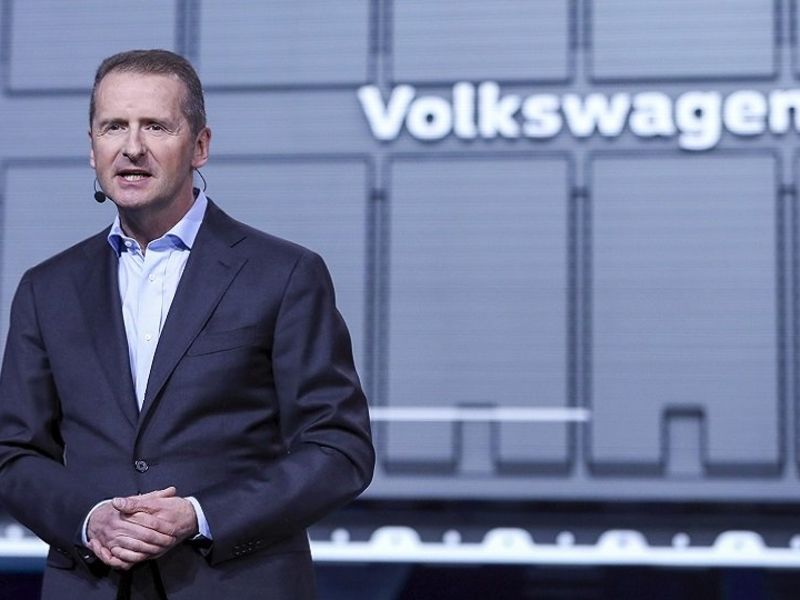
Volkswagen Group CEO Herbert Diess provided an upbeat outlook for the second half even as COVID-19 and a global shortage of semiconductors is poised to hit first-quarter results.
“I am looking forward to 2021 and I expect that the global economy will see an upturn in the second half of the year, by which time we should see ongoing vaccination programs take effect,” Diess told executives in an internal webcast on Monday, according to remarks seen by Bloomberg News.
“Then I expect people to buy more cars. We should prepare for a significant upturn,” Diess said.
The webcast was Diess’s first with top managers this year and was attended by new VW group management board members Murat Aksel, who heads purchasing, and Thomas Schmall, the group’s new technology boss. The two executives were appointed to the roles after an internal power struggle between Diess and labor leaders was defused in December.
VW lost the top spot in global sales to Toyota last year, but it sold more full-electric cars than Tesla in Europe and is escalating the world’s biggest push into purely battery-powered vehicles.
VW will roll out the ID4 crossover under its namesake brand in 2021 and add more versions of the Audi e-tron and Porsche Taycan models. The two luxury brands generate the biggest chunk of profits for the German industrial giant.
Diess said last month during a U.S. investor roadshow hosted by UBS Group that VW expects to sell about 600,000 purely battery-powered cars this year, with the ID4 accounting for 150,000. He emphasized though that VW will seek to protect margins while boosting sales volumes.
The CEO and key stakeholders, including the powerful labor side, agreed in December to reach a deal in the first quarter to lower fixed costs and material expenses to become more nimble.
Diess acknowledged on Monday that VW navigated the dramatic industry slump last year less well than some of its rivals
“We have set ourselves the target of reducing overheads by 5 percent and material costs by 7 percent,” Diess said. “This is necessary so that we have the strength to finance topics important to our future ourselves, since our market capitalization and governance structure do not allow us to raise additional equity.”